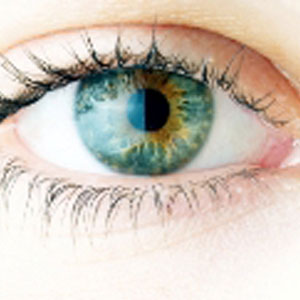
At a large public hospital where the study was done, few diabetic patients had visited the eye care clinic within the last two years.
That's troubling because without regular eye care, diabetics can lose their vision, author Paul MacLennan told Reuters Health. MacLennan led the study at the University of Alabama at Birmingham School of Medicine.
Roughly 26 million people in the US have diabetes – and about a third of them have a dangerous eye condition called diabetic retinopathy, according to the Centres for Disease Control and Prevention. In diabetic retinopathy, the retina doesn't receive enough blood, and people can go blind as a result. In early stages, the changes in the eye are hard to detect.
Diabetic retinopathyLaser treatments can help slow or stop vision loss, but they cannot restore sight that's already lost, according to the American Optometric Association.
That's why it's important to catch the condition in its first stages with regular eye exams."Diabetic retinopathy is the leading cause of blindness among working-aged adults in the United States," MacLennan told Reuters Health in an e-mail. "People with diabetes are also at increased risk for other eye disease such as glaucoma and cataracts," he said.
Patients are at risk regardless of whether their diabetes is type 1 or type 2. Several US health authorities agree that people with type 2 diabetes should have eye exams every year, and those with type 1 should have yearly exams starting five years after their diagnosis.
For the new study, researchers examined the records of 867 diabetic adults who visited an outpatient clinic at Cooper Green Mercy Hospital in Birmingham, Alabama, in 2007. Three quarters of the patients were black. On average, patients had been diagnosed with diabetes about three years earlier.
More than half had uncontrolled diabetes and more than half were uninsured.
Receiving the message
Only 33% of patients had visited the eye care clinic within the previous year, and 45% had visited in the previous two years, according to results in JAMA Ophthalmology.
Compared to those older than age 65, patients between 19 and 39 years old were less likely to have visited the eye clinic.
That's not surprising, MacLennan said, because generally, "younger people have not had a long duration of diagnosis and are likely to have not as frequently received the message that annual eye care is important.
"Educating patients and providers about eye health could help increase awareness and necessary eye exams, he said." Recent studies suggest that only 2 in 3 people with diabetes follow the recommended guidelines," MacLennan said.
The results of the study add to the evidence that poor African Americans don't receive adequate eye care, he said. "Educational efforts directed at younger minorities with diabetes have the potential to increase awareness of the importance of eye care among these groups," he said.




 Publications
Publications
 Partners
Partners















